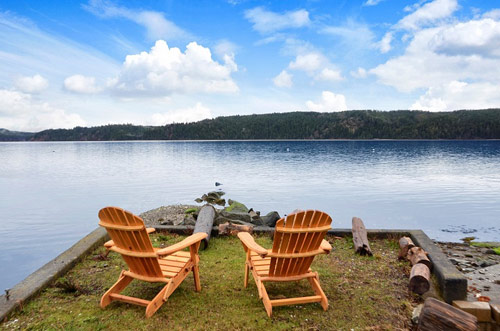I’m Ready to Downsize But How Do I Start?


Are you thinking about downsizing but don’t know how to make the tricky transition work? How do you buy a new place before you sell your current home?
You are not alone as many home owners have the same concerns. They want to embrace a new lifestyle, take advantage of our ever-increasing values, and lock in a smaller home or condo in an area that they covet.
Below are some creative solutions that may help you make your dreams come true too. Keep in mind that everyone’s financial profile is different. One option might not work for you while another one will. It might even be a combination of a few of these.
Here are a few ideas:
HELOC – Home Equity Line of Credit. If you have enough equity in your current home, you may be able to get a HELOC to get a down payment for a conventional loan or to buy the new property outright.
Bridge Loan – These loans can bridge the gap between buying and selling. You can typically borrow up to 65% of the equity in your home with a maximum loan of $500,000.
Margin Loan – most individuals can borrow up to 50% of the balance in their liquid investment accounts (retirement accounts cannot be used). These loans are generally cheaper than a bridge loan and have no major tax implications.
IRA Rollover – Most retirement funds allow a 60 day rollover of funds. It’s very important to know that these funds must be replaced into the retirement account within 60 days or you may incur significant penalties and taxes.
Making a move, whether you are buying a larger home or downsizing out of your now empty nest, is a big decision. You’ll want the best professionals to help you. Ask your real estate agent to put you in touch with a lender who will help evaluate your financial situation and customize the best options for you.
June Griffiths is a Managing Broker in the Windermere Issaquah office and has worked in real estate since 1989.
6 Things to Consider Before Buying a Vacation Getaway
Hood Canal is a favorite vacation getaway. It's only two hours from Seattle and offers so much in the way of waterfront enjoyment like boating, fishing, shellfish, kayaking and beachcombing. Its a hiker's paradise here in the foothills of the Olympic National Forest and National Park. It is remote, yet only two hours from the Seattle metropolitan area. Our market is primarily second homes, vacation properties and is home to many retirees. If you are considering purchasing a vacation getaway, here are some things to think about and get you inspired:
Location. How often will you use it? Is it easy to get to? Do you have to wait in ferry lines or take a plane to get there? The harder it is to get to, the less likely you will use it. If you can't be there very often, can you hire someone to keep it maintained? Is it on a sunny hillside or in a cool valley. How will the weather impact the location. Will your view be affected by anything in the future? Are there any safety issues like weather, floods, fire? How about the crime rate. The great thing about having a weekend getaway is that you can keep it supplied so you don't have to pack and unpack every time you go there. Be sure your stuff is safe and not vulnerable to theft.
Fun and Recreation. What is your lifestyle? Do you need movie theaters, concerts, restaurants or other venues to keep you entertained? Or are you looking to get away from it all and experience the outdoors on a regular basis.
Services. What kind of services do you expect. Emergency response. Health care. Will you need good health services and if you do how far away are they? How far do you have to drive for groceries? Is there public transportation?
Costs. How much would you have to invest to get the kind of place you would enjoy? How will you finance it? Consider tax advantages. If you are looking at land, can you get utilities and how much will that cost you? Is the area a good investment in the long run if you have to sell? Would it be appealing to others as a vacation rental? If so, would the covenants allow short term rentals? Will you eventually retire there? If so, think about how you might handle spending your old age there.
Spend some time there. Stay in the peak season and during the slow season. Talk to the locals. What do they like about the area? Anything to watch out for? Get to know the prime neighborhoods and the ones to avoid. To save time, make sure to work with an agent that knows the area well.
Family and Friends. Do you have friends and family that will come and visit? Do they have campers, or do you need to put them up? During the peak season expect regular visitors. Its part of the fun to have friends and family over. How will that affect what you buy?
If you do your homework up front you will find that your getaway will reward you with fun and relaxation for years to come. You'll continue to discover special places to explore and create heart-warming memories for you and your family.
 Facebook
Facebook
 Twitter
Twitter
 Pinterest
Pinterest
 Copy Link
Copy Link
